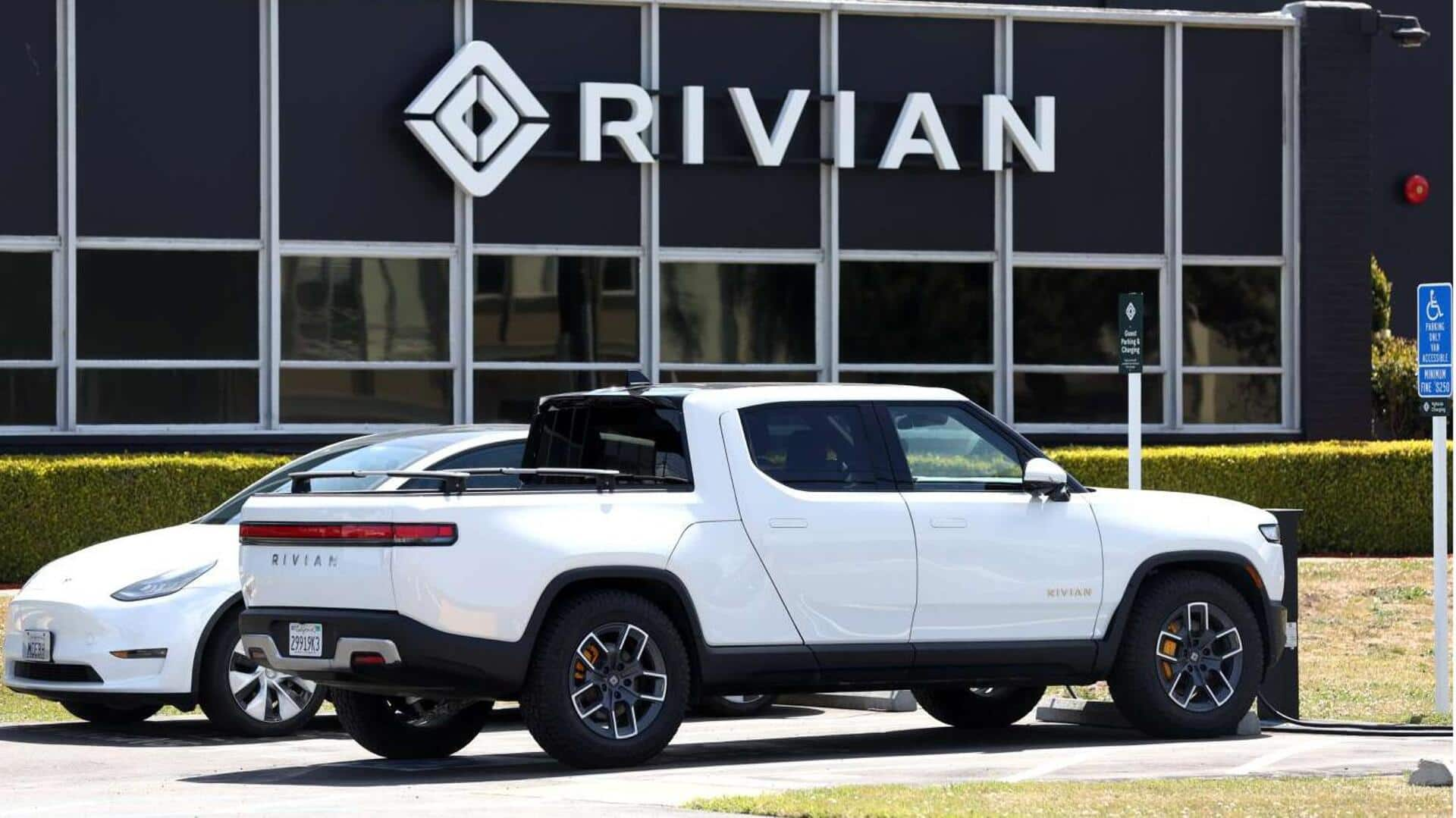
Rivian's stock skyrockets 50% after Volkswagen's $5 billion investment
What's the story
American EV maker Rivian's share price soared by 50% in extended trading, following the announcement of a $5 billion investment from German auto giant Volkswagen. This significant increase in share price boosted Rivian's market value by nearly $6 billion, despite the stock being down over 43% year-to-date. The investment is part of a new joint venture aimed at sharing electric vehicle (EV) architecture and software, controlled equally by both companies.
Investment details
Volkswagen's investment plan and Rivian's future prospects
Volkswagen plans to invest $1 billion immediately in Rivian, which will convert to stock on December 1, subject to regulatory approvals. An additional $1 billion will be paid at the inception of the joint venture. Further investments include $2 billion in Rivian stock by 2026 and a $1 billion loan in the same year, contingent on certain milestones being achieved by the Tesla rival.
CEO statement
Rivian CEO enthusiastic about Volkswagen partnership
"The partnership brings Rivian's software and zonal electronics platform to a broader market through Volkswagen Group's global reach and scale, while providing an expected $5B of capital to Rivian as we bring R2 and our next generation of vehicles to market," said Rivian's CEO, RJ Scaringe. The funding will enable Rivian to develop its less expensive R2 SUVs set for release in early 2026 and its planned R3 crossovers.
Licensing deal
Joint venture to leverage Rivian's intellectual property
As part of the joint venture, Rivian will license its existing intellectual property rights. The first vehicle to utilize software from this partnership will be the R2, followed by Volkswagen vehicles including its Audi, Porsche, Lamborghini, and Bentley brands. This collaboration is expected to help Rivian become cash-flow positive despite reporting a loss of $1.45 billion in its latest quarter.
Industry struggles
Volkswagen's strategic move amid auto industry challenges
The investment comes at a crucial time for the auto industry, as EV startups face a slowdown in demand due to high interest rates and dwindling cash reserves. Traditional automakers are also grappling with the development of battery-powered vehicles and advanced software. The partnership with Rivian is seen as a strategic move by Volkswagen to address its struggles in software development, following the failure of its software division, Cariad, to meet its goals.
Financial health
Rivian's financial stability amid industry challenges
Despite incurring losses of nearly $40,000 for every vehicle it delivers, Rivian has managed to maintain a steadier footing than other EV startups. The company has been cutting costs and renegotiating supplier contracts while working on timely delivery of its EVs. Rivian's cash and short-term investments fell by about $1.5 billion in the first quarter to just under $8 billion, but prior to the VW deal, it had stated it had sufficient capital to launch the R2 SUVs.